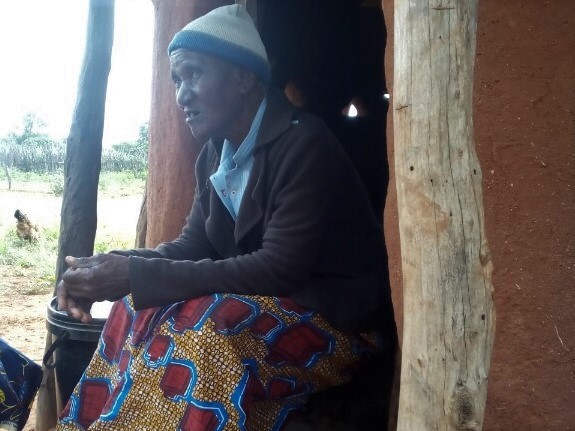Ministry of Agriculture responds to our call for timely distribution of planting materials to flood victims (farmers) in Ayamelum, Nigeria
Chinyere Ogugua Okafor
Nigeria
Reporting topics:
Infrastructure
In November 2020, communities in Anambra West were hit by a devastating flood that affected over 20,000 people. Some of the most affected communities are those that share boundaries with Enugu state, including the riverine area of Igbakwu. This incident has resulted in severe hunger for affected families and communities because the flood had washed away their farm produce.
In June this year, a verification exercise was conducted by the State Emergency Management Agency (SEMA) through the agricultural control board of the Anambra state ministry of agriculture. The verification exercise was to access households within communities of Ayamelum and other LGAs that suffered from the flood.
Prior to this problem, farmers in the area used to receive cassava stems annually from the government as a way of supporting local farming activities. The stems are usually supplied during the peak of the rainy season, but this year, they came only after the rains had ended. This made it difficult for farmers to plant the stems because the soil was very hard to cultivate. With most of the farmlands and houses hit by floods and low farming activities due to the lack of stems, communities faced the grim prospect of famine.
As the cluster coordinator of Community Reporters trained by On Our Radar on the ECID project Chinyere explains further,
‘Together with other Community Reporters in Ayemelum we embarked on an advocacy exercise. We visited the agricultural board of the ministry of agriculture to voice the concerns faced by people that were affected by the floods in their communities.’
The visit brought the attention of government officials to the affected locations and as a result, the ministry, through the local government, invited the bank to conduct an assessment that helped to capture the number of affected households. After the assessment, a representative from each community was invited to the local government secretariat to collect cassava stems on behalf of their members.
Each member of the affected households across the 8 communities was registered at the state ministry of internal revenue and issued Anambra State Integrated Identity number (ANSID).
‘As a result of our advocacy, cassava stems were supplied to all affected communities earlier than before.’
Chinyere.
The ministry itself used to provide the stems early in the year, but bureaucracy had affected the timely distribution of stems to farmers. Farmers will usually just use the stems as firewood if they received them at the end of the planting season.
‘Our intervention has been critical for communities that were hit by floods and suffering from hunger.’
Chinyere.
Locals say that the stem distribution this year was free from bureaucracy and done in a transparent manner and that the farmers are happy.
This article was written by ECID’s Community Engagement Officer Joseph Damian in co–production with Our True Voice community reporter, Chinyere Ogugua Okafor, who was reporting on this issue in her community.
About ECID Reporters
ECID is a data-driven project that seeks to contribute to reducing poverty and improving the wellbeing of marginalized people in Kaduna and Anambra states of Nigeria. The project seeks to improve the wellbeing of three groups that have been identified as the most marginalised; adolescents (boys and girls), people with disabilities, and poor rural women living in hard-to-reach communities.
Selected volunteers are trained as Community Reporters to amplify the voice of those who are marginalised to increase the effectiveness of civil society and create greater responsiveness amongst duty bearers through harnessing the potentials offered by digital evidence. The reporters are trained in among others, basic journalist skills such as micro reporting, safeguarding, mobile phone security, digital media, and interviewing skills.


